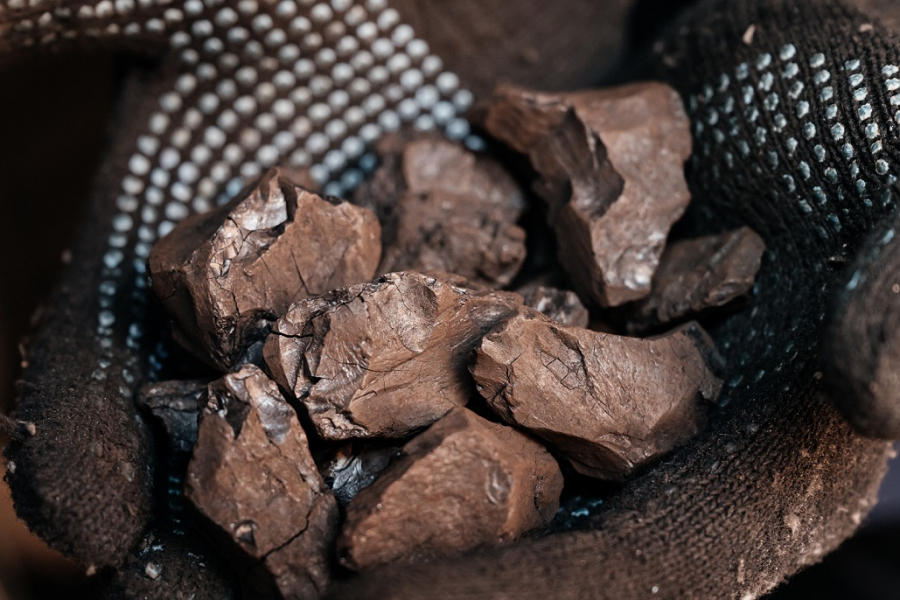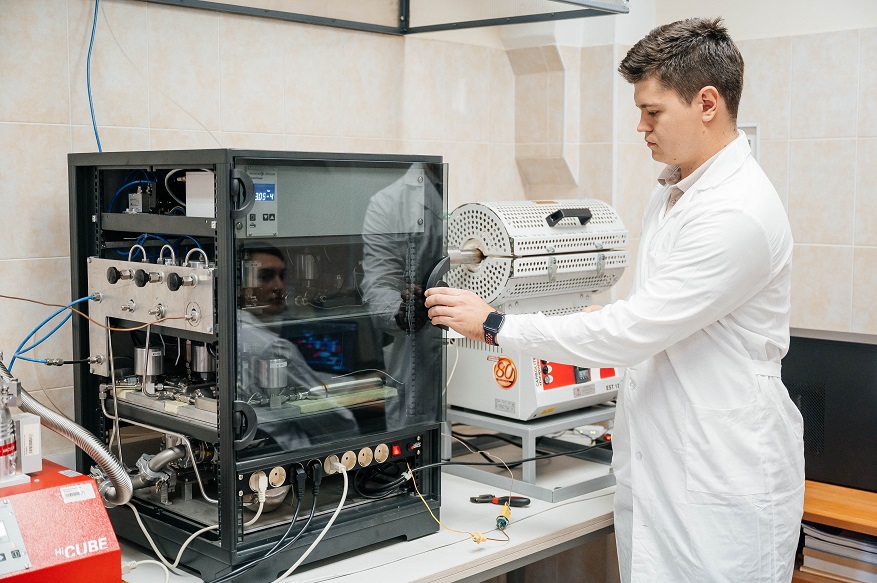Scientists of the Advanced Engineering School (AES) of Tomsk Polytechnic University have developed a catalytic modifier for combustion of solid fuels. It is a special additive to be mixed with coal. Laboratory tests have shown that the use of the modifier reduces carbon monoxide emissions by 50-60%, prevents soot formation and minimizes fuel underburning.
The modifier is a dispersed metal oxide that is mixed with a liquid carrier and then mixed with the coal.
"A number of scientific groups performed a comprehensive study. At the beginning, we selected the active metals and carried out a cycle of work to test their efficiency - first on small laboratory installations, and then on a larger stand, which allowed to simulate the operation of a solid-fuel boiler house with layer boilers which are widely used in the Russian Federation," notes Konstantin Slyusarsky, Associate Professor at TPU's Butakov Research Center.
The combustion modifier developed by the scientists of the Polytechnic University promotes the process of deep oxidation of organic fuel, which allows for more efficient fuel combustion. The key feature of this development is that it reduces the emission of carbon monoxide into the atmosphere and the amount of soot produced. This results in a specific increase in heat generation.
"The main idea of using the modifier is to reduce fuel underburning. It allows us to improve the combustion process of solid fuel and use its energy potential more fully. The additional effects also include environmental friendliness. Thanks to the technology, less carbon monoxide is emitted," adds Konstantin Slyusarsky.
The scientists conducted a series of experimental studies. Their results showed that the use of additives in various conditions can reduce carbon monoxide emissions from coal combustion by 50-60%, fuel underburning by 12%, and nitrogen oxide by 25-30%. According to the researchers, by using a modifier of certain compositions, it is also possible to obtain up to 10% additional heat in fuel combustion.
"Our scientific team conducted a series of pilot tests at the boiler plant, where the operating conditions are close to those of layer type residential and power boilers. The main task of the study was to determine how the equipment works with the use of a catalytic modifier and without such modifier. The results of the study showed that when using the modifier, the concentration of CO produced was reduced by 57%," the researcher says.
The results of the study were published in the Energy journal (Q1, IF: 9).



